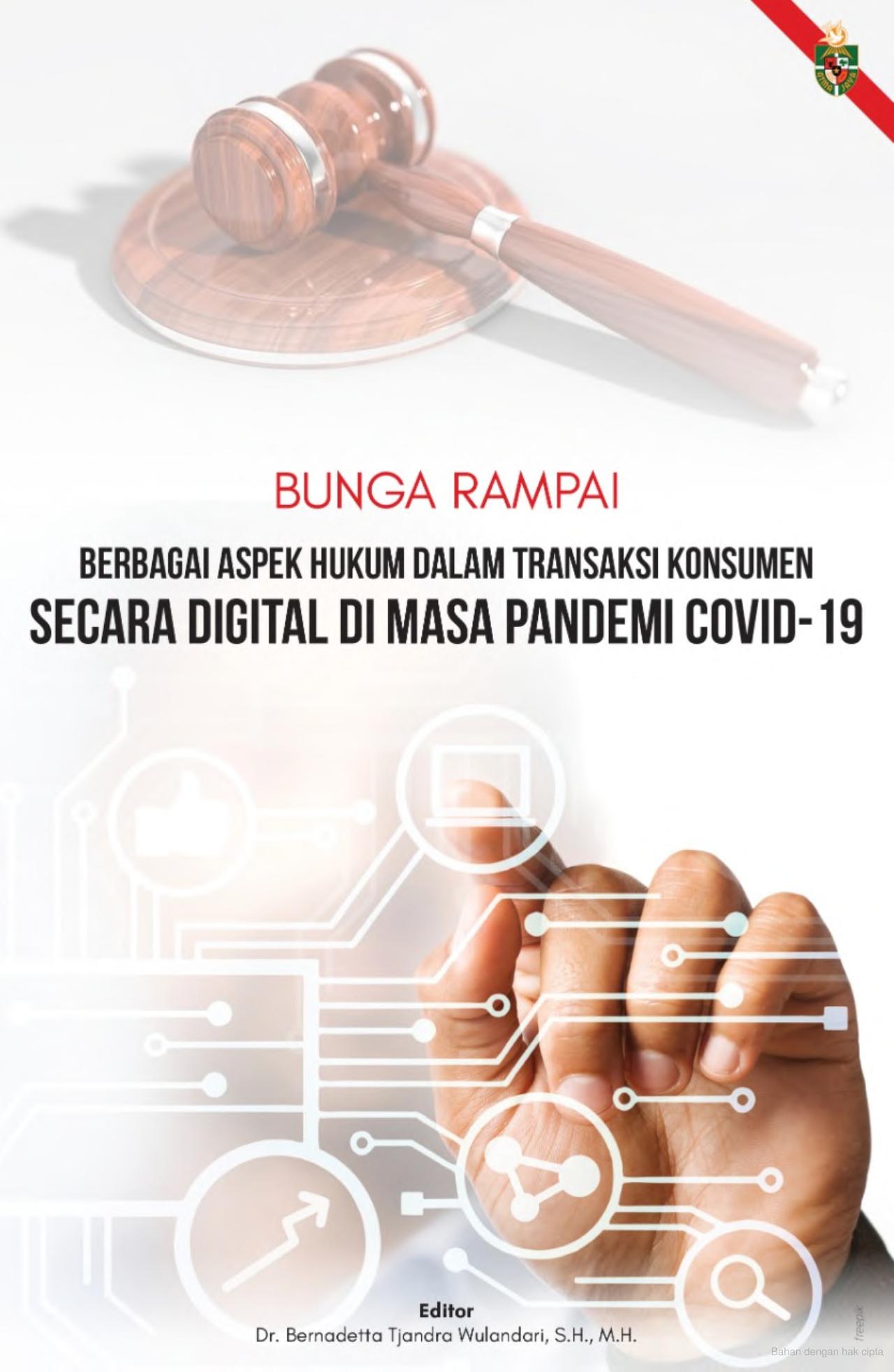The Edited Collection: Various Legal Aspects Concerning Consumer’s Digital Transactions during the COVID-19 Pandemic
3/27/2023 12:00:00 AM
AUTHORS:
Bernadetta Tjandra Wulandari
Marhaeni Ria Siombo
Yusuf Shofie
Valerie Selvie
Laksana Arum Nugraheni
YEAR OF PUBLICATION:
22 March 2021
PUBLISHER:
Atma Jaya Catholic University of Indonesia Publisher
DESCRIPTION:
Various policies during the COVID-19 pandemic have been issued in efforts to stop and curb the spread of the COVID-19 virus, as well as to prevent any more pandemic deaths. The strict implementation of health protocols and the Large-Scale Social Restriction (PSBB) in many cities in Indonesia, along with the work-from-home policy, have led to many changes in various aspects of human life.
Business and trade have been some of the areas deeply affected by the implementation of these pandemic-related policies. Many businesses are forced to alter their business strategies and models to prevent and minimize the loss or other adverse outcomes as a consequence of the pandemic. Those businesses which used to be run conventionally should gradually be transformed into those utilizing electronic/digital trade. Such changes have inevitably had impacts on the legal aspect concerning the types of transactions involved.
The business world has seen an increase in the number of legal cases during the pandemic, especially those related to electronic/digital transactions, thus requiring a thoughtful response. It is then essential to thoroughly understand one’s rights and obligations in conducting electronic/digital transactions, not to mention relevant conflict resolution measures. The society’s legal awareness should be improved in regards to the risks of doing electronic/digital transactions during the COVID-19 pandemic, so that the people can wisely and independently secure and exercise their rights in case of any potential loss in their transactions.
The precis of the articles in this collection can be outlined as follows. The volume begins with the first article titled “Electronic Transactions from the Lens of Legal Rights and Obligations“ written by Dr. Bernadetta Tjandra Wulandari, SH, MH, which expounds on various issues concerning consumers and business owners as the main counterparts in electronic transactions, as well as their rights and obligations, including the evidentiary aspects of any particular cases outside the provisions stipulated in the Civil Law.
The next article, written by Dr. Marhaeni Ria Siombo, SH , M.Si, is titled "Formal Agreement in Electronic Transactions and Its Problems“, which explores the position of formal agreement in electronic transactions, as well as issues which often arise in regards to the content of the formal agreement in relation to the interest of the involved parties.
The enforcement of consumer rights in electronic transaction is comprehensively discussed by Dr. Yusuf Shofie, SH, MH, who shares his insights int he third article titled "Enforcement of Consumer Rights Law.“ In his article, he focuses on the law inventory during the COVID-19 pandemic, elaborating several relevant regulations and discussing the effectiveness of some consumer conflict resolution measures during the pandemic.
The next author, Valerie Selvie, SH, LL.M., PhD discusses various legal issues in some ASEAN countries in her article titled "Consumer Protection in ASEAN.“ She explores various policies concerning consumer protection in the ASEAN countries, which can definitely provide valuable insights given that each of the ASEAN countries may have different characteristics and scopes of laws in effect.
Last but not least, Laksana Arum Nugraheni also contributes in the last article titled "Legal Protection of Consumer’s Private Data in Electronic Transactions during the COVID-19 Pandemic“, which has recently become one of the trending legal issues, especially concerning the potential misuse of such personal data in electronic transactions, making it worth exploring in this volume.
As goes the saying, simple things that are useful for many people are better than luxury that only benefits oneself, and so is this book. It is hoped that the insights contributed by the authors in this volume can enrich the knowledge of anyone reading this book and provide them as many benefits as possible.


